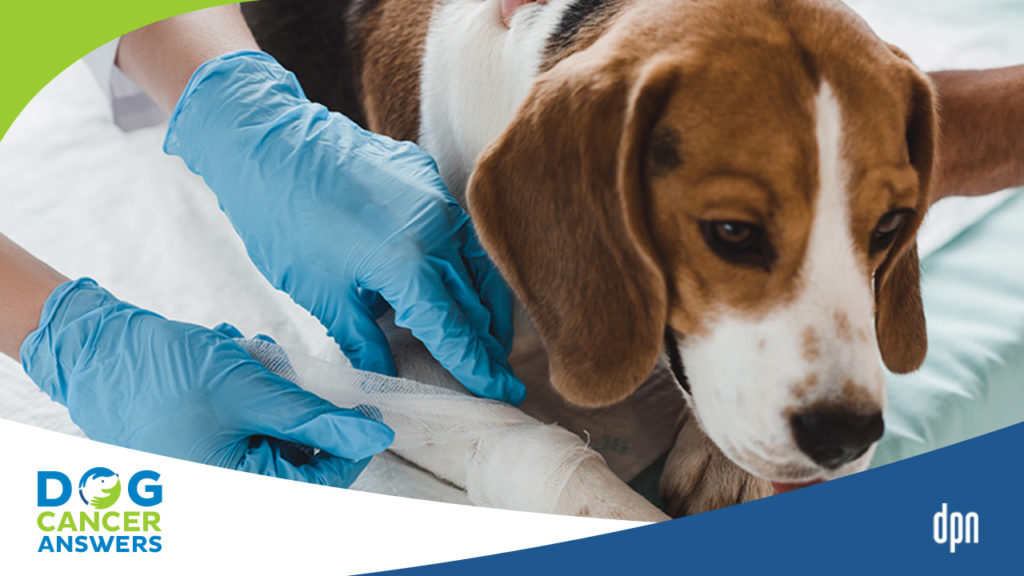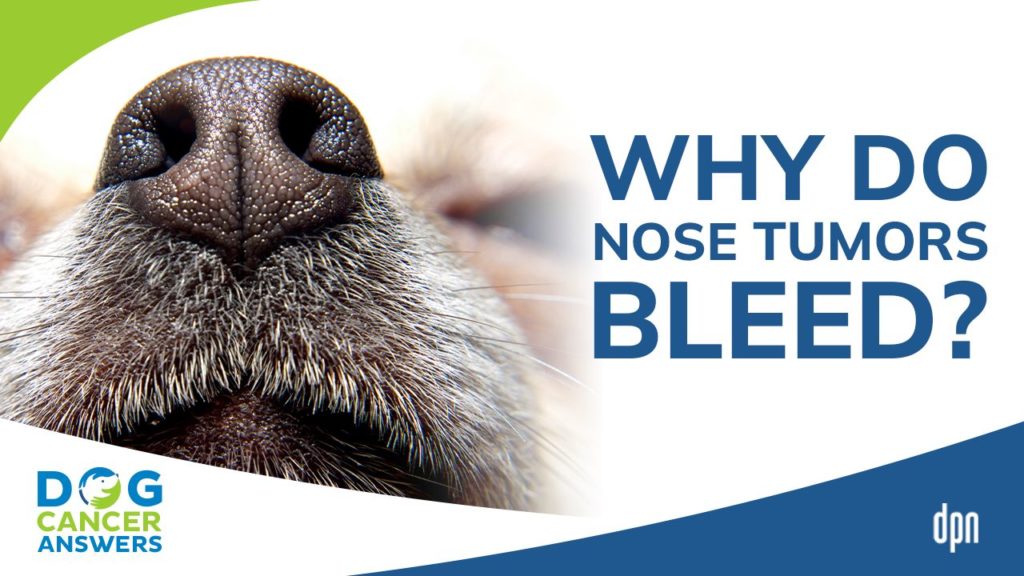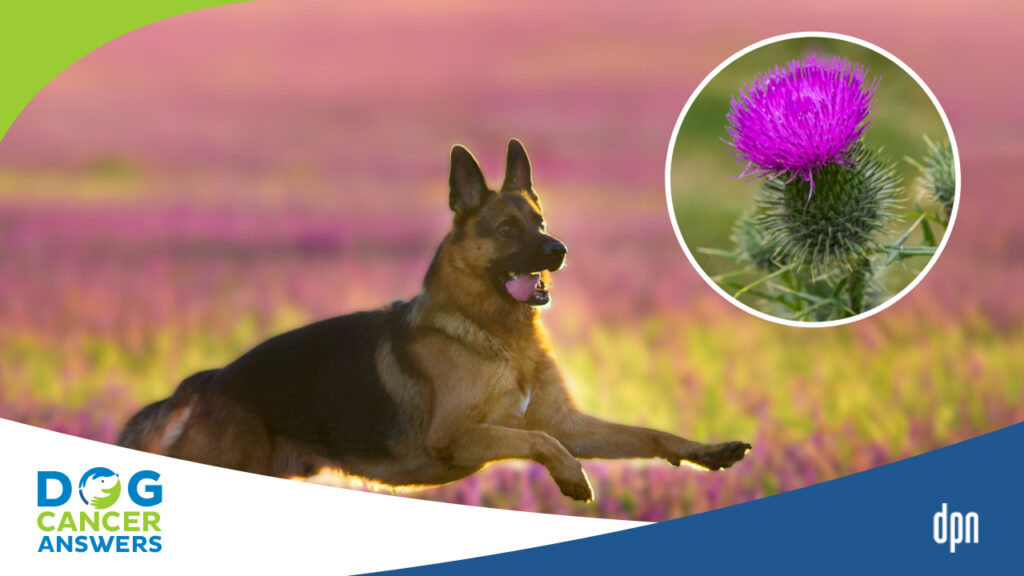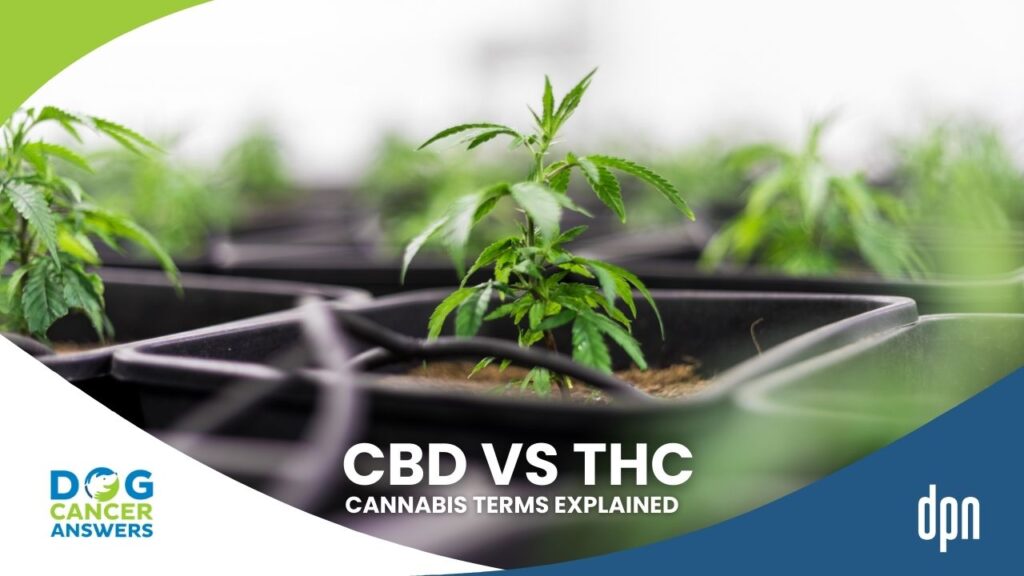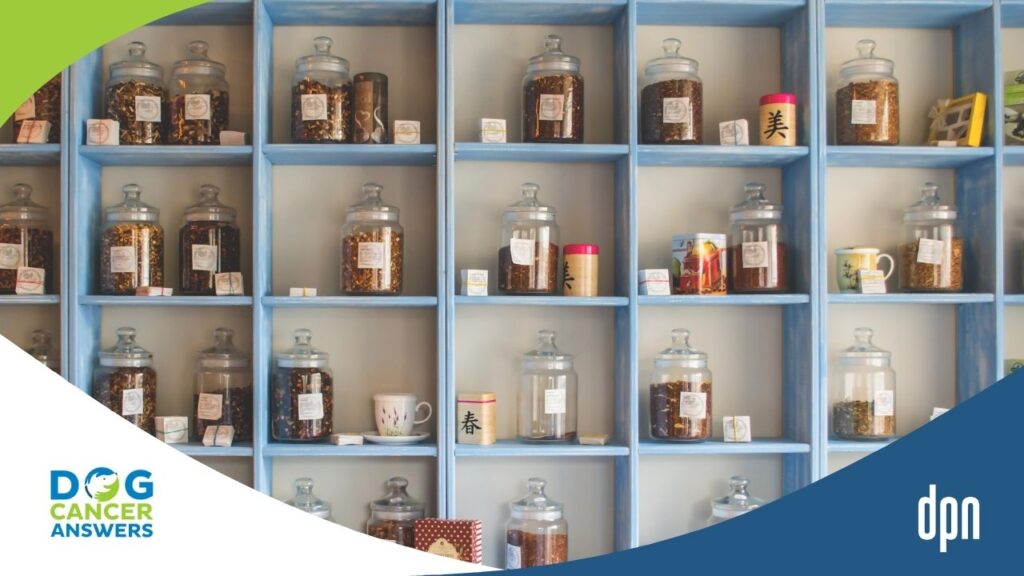EPISODE 100 | RELEASED December 14, 2020
Herbal Treatment for Bleeding Tumors in Dogs │ Dr. Demian Dressler Q&A
Dr. Dressler shares his expertise and recommendations for the usage of a Chinese herb called Yunnan Baiyao. Yunnan Baiyao has been used in Traditional Chinese Medicine (TCM) since the early 1900’s as a hemostatic agent (to slow or stop active bleeding).
SHOW NOTES
In this episode, listeners will learn a brief history about the Chinese herb Yunnan Baiyao, what it is and what it can be used for, as well as the necessary precautions that you and your veterinarian should take before adding this herb to your dog’s current list of supplements.
Links Mentioned in Today’s Show:
Links to the manufacturer’s website about the “tiny red pill” in the bottle: https://yunnanbaiyao.co/the-red-pill-of-yunnan-baiyao/
Link to “What is Yunnan Baiyao” from manufacturer’s website: https://yunnanbaiyao.co/what-is-yunnan-baiyao/
Link to the manufacturer website:https://yunnanbaiyao.co/
You can reach out to Dr. Demian Dressler directly on his veterinary hospital’s website: https://VetinKihei.com.
>> Dr. Dressler: For internal tumors, particularly hemangiosarcoma’s, which are tumors that are growing out of the wall of a blood vessel. They tend to bleed because blood vessel– a vein or an artery is a tube. And so, if you’ve got something growing in the wall of a tube, and that thing doesn’t grow in a way that looks like the wall of a tube and it creates a leak, well, then you’ve got bleeding within the body.
>> Narrator: Welcome to Dog Cancer Answers, where we help you help your dog with cancer. Here’s your host, James Jacobson.
>> James Jacobson: Hello friend. Thank you for joining me this week on Dog Cancer Answers. We have a very interesting question and answer episode about the very hard to pronounce, especially for Americans– and even harder working Chinese herb called Yunnan Baiyao.
Yunnan Baiyao is one of the most incredible herbs with superpowers that work almost immediately to stop the bleeding of wounds and bleeding hemangiosarcoma tumors, which as you just heard in the clip at the beginning of this episode, are tumors that grow directly out of the wall of blood vessels.
Yunnan Baiyao is truly a mystical, magical, very secretive, proprietary blend of herbs that are actually protected in their origination– Where they come from in Yunnan province in China. Now, I don’t want to get into too much detail here, as I brought in our special returning guest, Dr. Demian Dressler to do that for us.
Dr. Dressler is going to give us all a quick lesson on the history and uses and benefits of using Yunnan Baiyao in dogs with bleeding tumors. So, let’s go ahead and get started with this week’s Q&A episode on Yunnan Baiyao.
Dr. Dressler, thanks for being on Dog Cancer Answers with us today.
>> Dr. Dressler: You’re welcome.
>> James Jacobson: It’s good to have you.
So today we want to turn to a question that we get a lot of, and this is a question about a Chinese herb called Yunnan Baiyao. I will definitely put the name and the spelling in the show notes. What is it? How do you get it? And why are people talking about it?
>> Dr. Dressler: So, your pronunciation is probably a lot better than mine.
>> James Jacobson: How do you say it?
>> Dr. Dressler: Because I have an American accent– Yunnan Baiyao.
>> James Jacobson: Hey listener. It is future James. And since Dr. Dressler and I aren’t exactly sure if we’re using the proper pronunciation for this traditionally used Chinese herb, we searched the internet to see if there was someone out there that could help us with this pronunciation. It turns out everybody says it a little differently. So I thought we’d share some of those with you in this very short clip.
>> Audio clips: Unknown speakers: Yunnan Baiyao.
Yunnan Baiyao
Yunnan Baiyao
Yunnan Baiyao.
Yunnan Baiyao
>> James Jacobson: Well, there you have it. No definitive pronunciation. And so, to our Chinese and Chinese speaking listeners, we hope that you’ll give us feedback on how to pronounce it correctly. And I thank you in advance for your forgiveness of the mispronunciation, either earlier in this podcast or on the rest of the episode, let’s get back to it.
>> Dr. Dressler: I’ve used Yunnan Baiyao for probably decades now.
So, it’s a Chinese herb from Yunnan province and it’s used to mainly help mitigate bleeding. So Chinese medicine is a whole field in and of itself. And to be honest with you, I’m out of my depth going into all the nuances of Chinese medicine, because I’m not trained in Traditional Chinese Medicine as a veterinarian. Because it’s a whole medical system, but nonetheless, we can still use some of the tools that are available to us through that medical system and filter them through the Western sort of toolbox– you could say.
So it’s used to slow bleeding or to stop bleeding, like most of the Chinese remedies or therapies, it’s a concoction of many different things, all of that are delivered in smaller doses. And as it turns out, Yunnan Baiyao is considered a closely guarded national secret.
>> James Jacobson: In terms of the constituents that make up the product–
>> Dr. Dressler: The components. Yeah. What exactly is in it. It appears to be safe or at least generally safe in dogs. And what’s interesting about it is that it does work– it’s not like it’s God’s gift to hemorrhage, so you’re not going to stop bleeding if you cut off a toe, but it can help slow bleeding. And if you’ve got a bleeding tumor that keeps on oozing blood, you can certainly help your dog with that– and there are some cancers that will do that. Any cancer on the skin that keeps growing in a disorganized fashion, so the surface of the skin falls apart and starts to bleed. That’s one area where I use Yunnan– and I’ll just empty the capsule and sprinkle it or pack it in the area that’s bleeding. So, it works kind of like a topical cautery in the same way that there are these available products that are used for cutting nails.
If you cut your dog’s nails too short, you can get it’s called styptic powder and you put the powder in the cut surface of the nail firmly– you hold it in there to control the bleeding. So, Yunnan does that, but it seems to work a bit better and sting less for external tumors that are bleeding.
So when you put styptic powder– that’s the most commonly available like silver nitrate powders. Those really sting– and I know, cause I’ve tried it on myself.
>> James Jacobson: When I first started shaving many, many years ago with a blade, I was told to get a styptic pencil and yeah, it does really hurt, but it does coagulate the blood.
>> Dr. Dressler: Right– so, Yunnan seems to hurt much less, as far as I can tell. They don’t seem to have the same response.
And so for internal tumors, particularly hemangiosarcoma’s, which are tumors that are growing out of the wall of a blood vessel, they tend to bleed because a blood vessel– a vein or an artery is a tube. And so, if you’ve got something growing in the wall of a tube and that thing doesn’t grow in a way that looks like the wall of a tube and it creates a leak, well, then you’ve got bleeding within the body. The most common location is the spleen, and some of these dogs have bleeding elsewhere as well.
So anyway, your dog can take Yunnan Baiyao internally, and that can help to slow bleeding problems– and I wrote a blog post on this, but one of the things to keep in mind is, again, it’s under veterinary supervision, because if your dog has a bleeding tumor, well, you ought to be having veterinary supervision for that.
But the short story is for dogs under 10 pounds, I can give one capsule per day, for dogs 10 to 30 it’s one capsule twice a day, 30 to 60 it’s two capsules, two times a day, and for dogs above 60, you can give two capsules three times a day.
Now I don’t have a brand for you because again, the Yunnan Baiyao products that I get are made in China, but they do have English on the packaging material.
Again, hopefully your vet can acquire that for you. But one of the things about it is that in the human literature, and I think I’ve seen it in one or two dogs, it was a little bit hard to say, but there may be a little liver side effect with chronic and ongoing Yunnan Baiyao. And people should be aware of that.
So it’s a medicinal, so it has effects. And, generally speaking, things that have effects may also have effects that you don’t like. If they’ve got strong therapeutic effects, sometimes there can be also adverse effects. So, if your veterinarian is not comfortable with the Yunnan Baiyao, or doesn’t have the experience– one of the things that you guys are going to want to work together on is tracking the liver markers.
If your dog is on chronic Yunnan Baiyao and you’re using it for more than like a 5 or 10-day period– it’s going into weeks and months, you had better keep tabs on those liver markers. Another thing that I suggest to people is to give Yunnan Baiyao with a little bit of oil, because it’s better assimilated into the body in the presence of a fatty meal.
A good oil supplement, are the fish or the krill oil supplements that I talk about in The Dog Cancer Survival Guide, on the blog, and on the diet PDF– that has oil.
So if you give your Yunnan with your fatty acids, well, you’ve taken care of that. The final thing is that after about five to seven days, It seems based again on the human studies, that the absorption of Yunnan Baiyao will get shut down. The GI tract, all of a sudden stops taking it up.
So I usually will pulse it. There are exceptions, but by pulsing, I mean, like five, seven days on, and then like five days off or three days off. It depends on the clinical need. If the dog is bleeding and bleeding and bleeding without the Yunnan. And there’s no other way to take care of the problem, use it every day, but keep tabs on those liver markers.
And I usually combine it with some kind of liver supporting strategy, like a milk thistle type of supplement or something like that to try to keep the dog going down the good road.
>> James Jacobson: Other than hemangiosarcoma, are there any other conditions where you would look at Yunnan Baiyao?
>> Dr. Dressler: Yunnan Baiyao is interesting cause there’s anti-inflammatory effects and there’s some mild anti-cancer effects.
I think that the other applications for that would be considered experimental right now. And I don’t think that I can say, Oh, okay, well, yeah, use Yunnan Baiyao as an anti-cancer therapy for some other type of cancer.
I haven’t quite delved into that experimentally. And so, I tend to still reserve it towards those cases where there’s a need, that is the same therapy that the herb was designed for, or the therapy was designed for. And by the way, if you get your Yunnan, it’ll come with usually a little round sort of reddish-purple ball in it, one or two of those, and it’ll look different from the other ones. The red pill.
>> James Jacobson: One pill that’s different than the others. Yeah.
>> Dr. Dressler: One or two, it depends on the box. And so that’s going to be the emergency pill. So don’t throw that away. So, if your dog is having a hemorrhagic episode, that’s really bad, then you give that pill, again under veterinary supervision– but sometimes people are like, “what’s this little ball doing in my Yunnan Baiyao?” Well, that’s the emergency pill, so don’t throw it out.
>> James Jacobson: And so that’s like you have all these other pills and then there’s like one or two of these emergency pills, which are just more powerful?
>> Dr. Dressler: Yeah. They are more powerful, and they look differently, and they may even have different constituents. Again, I’m not quite certain.
>> James Jacobson: It’s really quite interesting in Hong Kong, I’ve seen the company that makes Yunnan Baiyao– they also make a type of toothpaste, I guess, presumably, so you don’t have bleeding gums. It really is just a whole other world, but I love the fact that you are bringing that to something that can really help dogs with him hemangiosarcoma, here.
>> Dr. Dressler: Yeah. It’s interesting. It’s certainly caught on a lot in the conventional veterinarian mindset in the oncology community.
There’s a study done– and I can’t remember if this study was like right around the time the book first came out or after that– I’m not sure. But there was a clinical study done with a small number of dogs that showed benefit.
And so kind of the presence of the book, and then also this small study that came out, I think really set the groundwork for the use of particularly that herb.
And it’s interesting because it kind of, I think opened the door to other systems of medicine– and particularly in cancer, but in the conventional mindset.
Because if you’ve got at least one reasonable study out there, well, that’s the language that the Western oncologist tends to speak. And so, if we can get more of those going with these different therapies, I think that’ll benefit a lot of dogs out here in the west.
>> James Jacobson: Shortly after the book came out, I accompanied Dr. Ettinger, she went to Taiwan to talk to veterinarians and we were on this little tour around Taiwan– very long tour. And we stopped outside of a pharmacy and she wanted to go in and get Yunnan Baiyao direct from them. But the English and the Chinese didn’t work very well– but it was very interesting. But it’s nice to know that it’s something that is much more readily available here for everyone in the US at this point.
>> Dr. Dressler: Yeah, and it’s pretty safe too. I mean, I don’t remember ever seeing a reaction aside from a couple of dogs that seem to develop a modest liver marker elevation, but that was over a long period of time. And I don’t know, a hundred percent that was due to the Yunnan or to other things that were going on.
Because you’re not going to be giving a dog Yunnan Baiyao all by itself. There’s a whole bunch of other things you’re going to be doing as part of a comprehensive, full spectrum treatment plan. Even if you’re a conventional oncologist, who’s decided to use some Yunnan, you’re still going to be having your pharmaceuticals as part of the mix.
So, sometimes it’s hard when you see something like that, like a liver marker elevation. You’re like, well, what is doing this?
It can be a little bit tricky to parse that out.
>> James Jacobson: Dr. Dressler, one of the early advocates of using that here in the West, at least in veterinary medicine.
Thanks for being with us today and talking about Yunnan Baiyao.
>> Dr. Dressler: You’re welcome.
>> James Jacobson: There you have it. A brief, yet very helpful lesson on the Chinese herb, Yunnan Baiyao. You know, another place that you can learn about many other supplements that Dr. Dressler recommends for dogs with cancer is the best-selling animal health book, The Dog Cancer Survival Guide: Full Spectrum Treatments to Optimize Your Dog’s Life Quality and Longevity, written as I said by Dr. Demian Dressler and his co-author Dr. Susan Ettinger. That book just happens to be this week sponsor on Dog Cancer Answers.
The best-selling book has everything that you could think of pertaining to dog cancer within it’s 500 pages. It is packed with information– it literally covers everything that you could probably ever need related to helping your dog survive and beat and manage cancer.
If you need a copy of the book, well, you’re in luck because getting one is as easy as buying it from your favorite bookstore, either online or a brick-and-mortar variety. And for those of you who like to shop online and are a little tech savvy, you can get an electronic version of the book in a PDF format on their website– the publisher’s website, and it costs you under $10.
In fact, a lot under $10, because I’m going to give you a promo code where you can get 10% off. So, ten dollars minus 10%– I’ll let you do the math. The website to do that at is dogcancerbook.com. And the promo code when you check out his “podcast”. Again, go to dogcancerbook.com, pick up a copy of The Dog Cancer Survival Guide, use the promo code “podcast” when you check out and you’ll save 10%– either on the eBook, the PDF copy or on the paperback. And the paperback has free shipping anywhere in the United States. Check it out at dogcancerbook.com.
Don’t forget if you like listening to our podcast, you’ll definitely want to receive notifications of all the new episodes when we release them. You can get those notifications by subscribing to Dog Cancer Answers for free in your favorite podcast app, or on our website at dogcanceranswers.com. Of course, we are also on YouTube and Spotify.
Do you need the show-notes for this episode or any other previously aired episode? Well, we have you covered. Go to our website, dogcanceranswers.com and every single episode from both seasons of our show has a dedicated page with detailed information and notes that can help you get the most out of an episode, so that you can get the most information to help your dog. Our website, again, dogcanceranswers.com.
Something else that we have you covered on is keeping you informed on how you can best care for your dog. That’s why I want to encourage you to join the growing community of subscribers for the Dog Cancer News newsletter. It’s free. It’s brought to you by the same publishing company and the same dog lovers who put together The Dog Cancer Survival Guide.
You can get a free subscription to the newsletter by going to this website, dogcancernews.com. And you will also be alerted to new episodes of Dog Cancer Answers and information about that, every Tuesday. So, go to dogcancernews.com and sign up for free. You can unsubscribe at any time.
Did you hear those tones? I know you did. They’re here to remind me to remind you that we have veterinarians on call at Dog Cancer Answers on our listener line. If you have questions for one of our dog cancer vets, give us a call. And tell us about it. We’ll make sure that your question is addressed with one of our veterinary experts, and it could be featured on a future episode of Dog Cancer Answers.
The telephone number to do that is (808) 868-3200. That is a 24 hour a day, listener line that you can call in any time of day– (808) 868-3200.
Well friends, that concludes today’s episode with Dr. Demian Dressler. Until next time, I’m James Jacobson and from all of us here at Dog Cancer Answers and Dog Podcast Network, we wish you and your dog a very warm Aloha.
>> Narrator: [00:17:24] Thank you for listening to Dog Cancer Answers. If you’d like to connect, please visit our website at dogcanceranswers.com or call our listener line at (808) 868-3200.
And here’s a friendly reminder that you probably already know, this podcast is provided for informational and educational purposes only. It’s not meant to take the place of the advice you receive from your dog’s veterinarian. Only veterinarians who examine your dog can give you veterinary advice or diagnose your dog’s medical condition. Your reliance on the information you hear on this podcast is solely at your own risk. If your dog has a specific health problem, contact your veterinarian.
Also, please keep in mind that veterinary information can change rapidly. Therefore, some information may be out of date.
Dog Cancer Answers is a presentation of Maui Media in association with Dog Podcast Network.
Hosted By
SUBSCRIBE ON YOUR FAVORITE PLATFORM
Topics
Editor's Picks
CATEGORY


